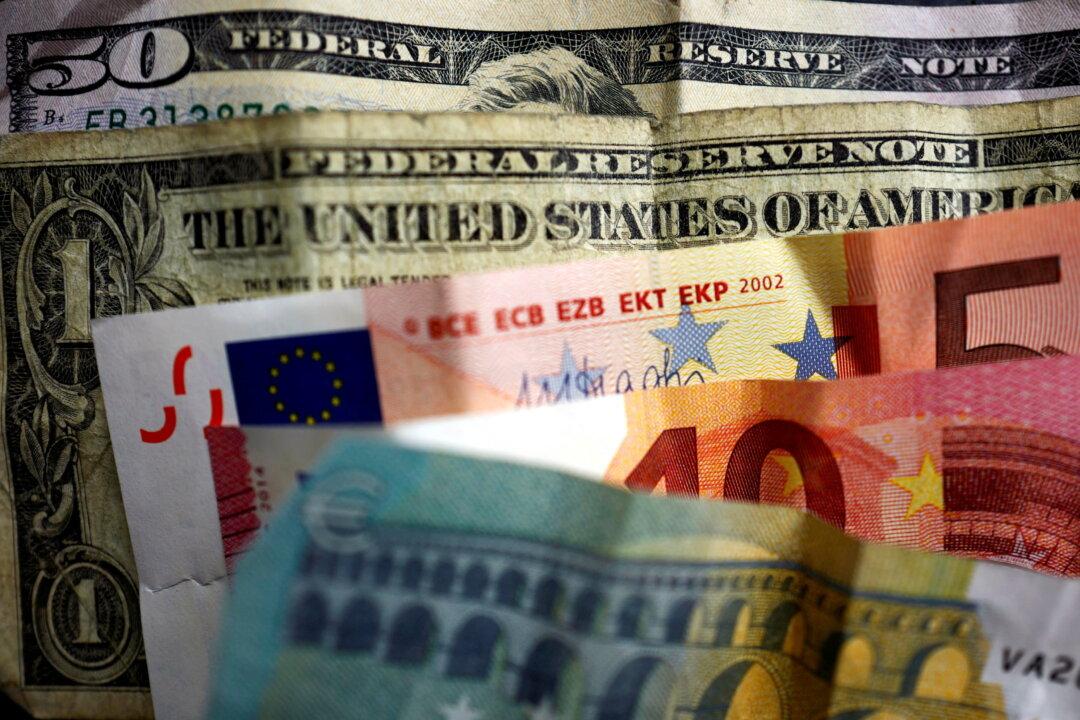LONDON/SINGAPORE—The dollar rallied on Thursday, after earlier falling to a one-month low in choppy trading ahead of an expected rate hike from the European Central Bank (ECB).
The greenback has slid in recent days as investors have cheered signs that the U.S. Federal Reserve is considering slowing down its aggressive rate hikes in December. Yet the dollar reversed course on Thursday in what analysts said was a natural bounce after a steep decline.





